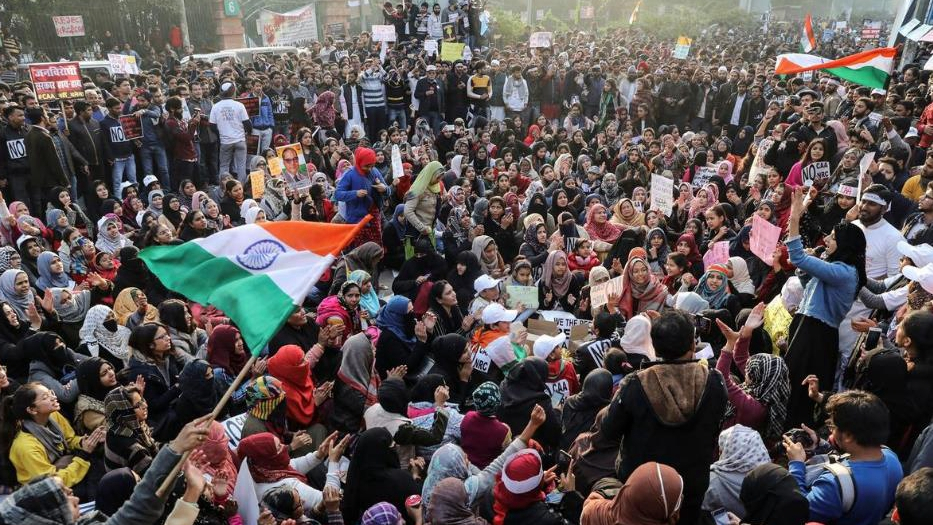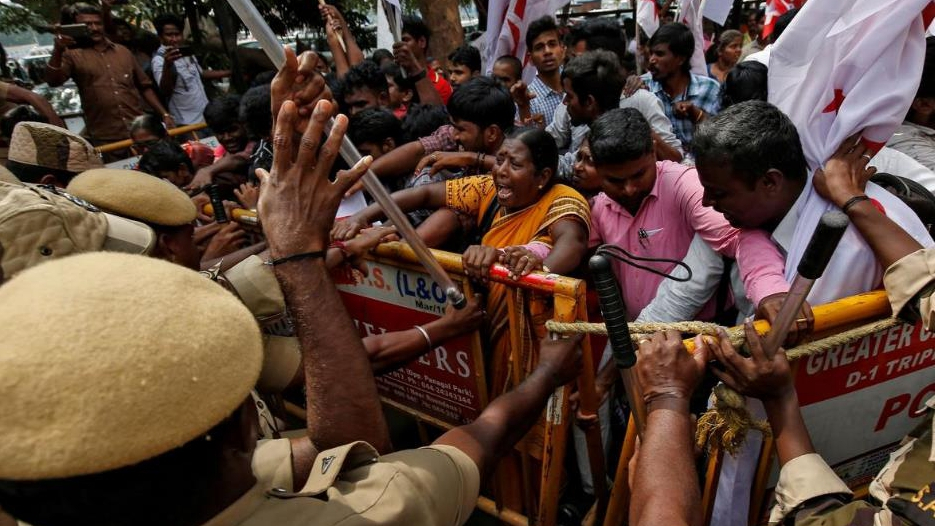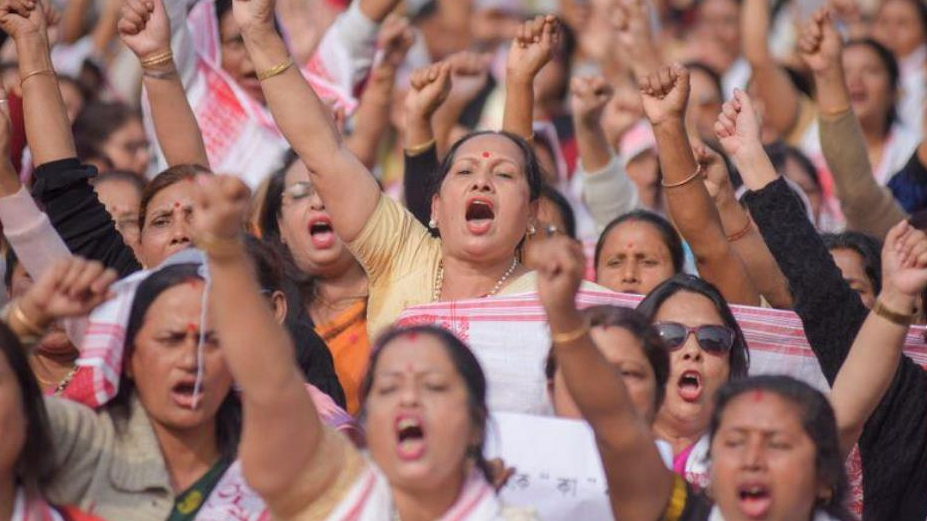
Demonstrators attend a protest against a new citizenship law, outside the Jamia Millia Islamia University in New Delhi, December 21, 2019. /Reuters Photo
Demonstrators attend a protest against a new citizenship law, outside the Jamia Millia Islamia University in New Delhi, December 21, 2019. /Reuters Photo
More than 1,500 protesters have been arrested across India in the past 10 days, officials said, as police try to quell sometimes violent demonstrations against a citizenship law that critics say undermines the country's secular constitution.
Additionally, some 4,000 people have been detained and then released, the officials said.
Those arrested and detained had been resorting to violence during the protests, said two senior federal government officials who spoke on condition of anonymity.
At least 19 people have been killed in clashes between police and protesters since parliament passed the law on December 11. Critics of the law say it discriminates against Muslims and threatens India's secular ethos because it makes religion a criterion for citizenship.

Police officers confront demonstrators during a protest against a new citizenship law in Chennai, December 21, 2019. /Reuters Photo
Police officers confront demonstrators during a protest against a new citizenship law in Chennai, December 21, 2019. /Reuters Photo
The law aims to grant citizenship to minorities of the Hindu, Buddhist, Christian, Sikh, Jain and Parsi faiths from Muslim-majority Afghanistan, Pakistan and Bangladesh that are deemed as suffering persecution in those nations. The applicants should have entered India on or before December 31, 2014.
Hundreds of protesters and police have been injured in the protests, the strongest show of dissent against Prime Minister Narendra Modi's Hindu nationalist government since he was first elected in 2014.
Modi met his council of ministers on Saturday to discuss security measures related to the protests, government sources said.
Demonstrations continued on Saturday despite curfews and tough measures aimed at shutting down the protests.
India's most populous state, Uttar Pradesh, has seen the worst violence with nine people killed and several more in critical conditions in hospital. The state, which has long seen clashes between majority Hindus and minority Muslims, is ruled by Modi's nationalist party.

Demonstrators shout slogans during a protest against a new citizenship law in Guwahati, December 21, 2019. /Reuters Photo
Demonstrators shout slogans during a protest against a new citizenship law in Guwahati, December 21, 2019. /Reuters Photo
Authorities shut schools across the state as fresh protests erupted on Saturday.
More demonstrations were planned in several parts of the country, including in the northeastern state of Assam. Resentment against illegal immigrants from Bangladesh has simmered for years in Assam, one of India's poorest states, where some residents accuse outsiders, Hindus or Muslims, of stealing jobs and land.
Critics of the law say it has struck a blow to a country that has long taken pride in its secular constitution. India has a population of 1.3 billion, with a majority of Hindus, a large minority of Muslims and several other smaller faiths.
Political opposition against the law has included state leaders from regional parties saying they will prevent its implementation in their states. The government has said there is no chance the law will be repealed.
(With input from Reuters)